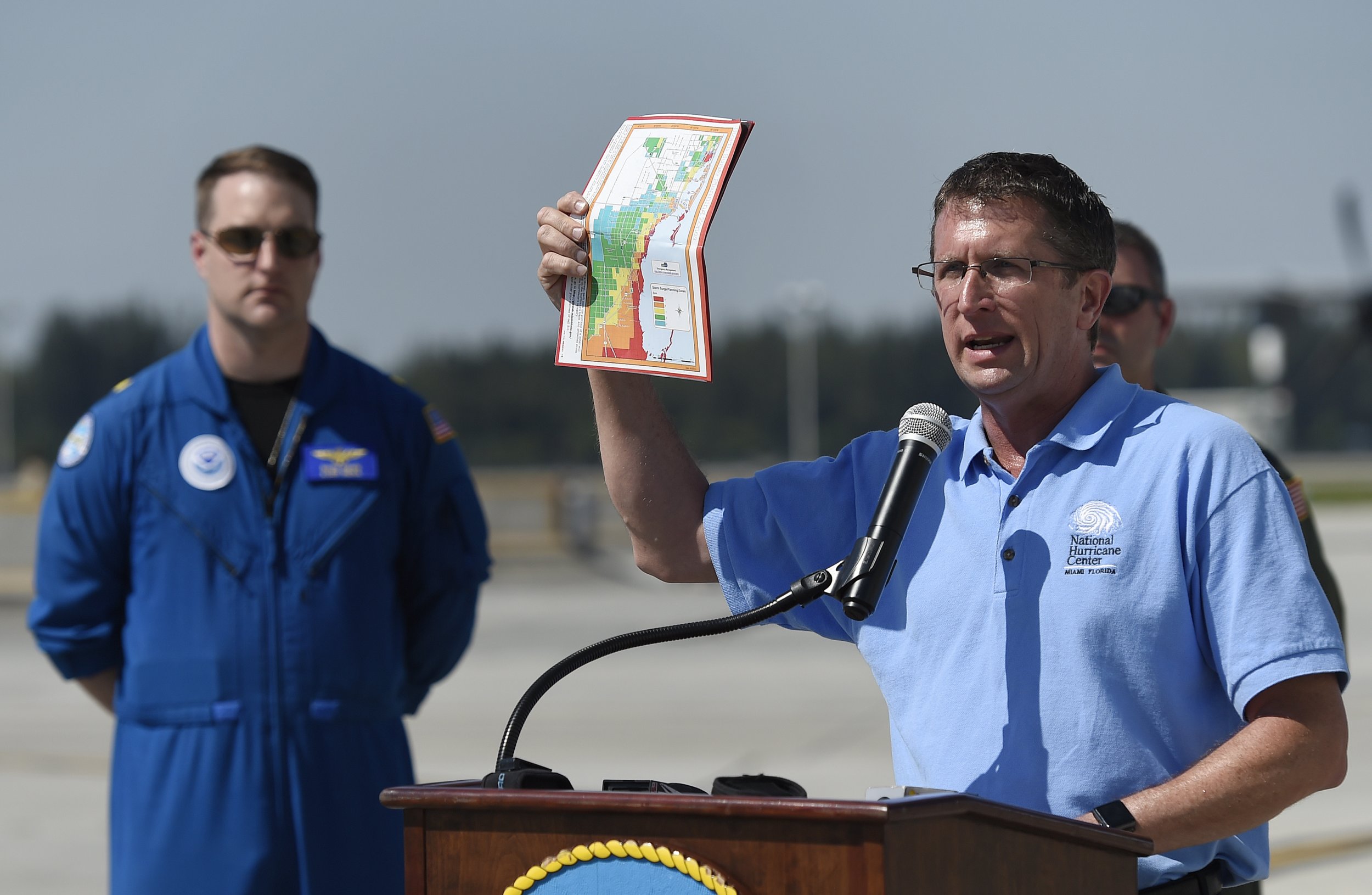
The National Hurricane Center has been operating without a full-time leader since May, even as major hurricanes have hit the United States and its territories in recent days and weeks.
The center is part of the National Oceanic and Atmospheric Administration (NOAA), which falls under the Department of Commerce. Located at Florida International University in Miami, the center tracks extreme tropical weather and issues warnings. On Wednesday, the agency was monitoring Hurricane Maria as it crossed the Atlantic and hit Puerto Rico. It was also issuing advisories about Tropical Storm Jose. In May, Rick Knabb left his post as director of the center, and the position remains vacant during a hurricane season that has caused many deaths and much destruction.
Related: One-third of FEMA leadership positions are unfilled
There is someone at the helm: Ed Rappaport, a 30-year veteran of the agency, is serving as the center's acting director. He will continue to do so until the end of this hurricane season, a NOAA spokesman said in a statement. "He has served as acting NHC director in the past when former directors departed or retired," the spokesman added.
The National Hurricane Center isn't the only government office or agency involved in preparing for and responding to severe storms that is without a full-time leader. As of mid-August, nine of 26 top positions at NOAA were filled only temporarily, including the top post. At the Federal Emergency Management Agency (FEMA) as of early September, 14 of 47 were temporary, including the No. 2 role. And at the Department of Homeland Security, which oversees FEMA, 26 of the 57 leadership positions were temporarily filled or vacant as of September 12, including secretary.
In many cases, career employees with knowledge of the roles are filling in. "As long as the people that are in the acting positions are qualified, it should have little, if any, impact" on disaster recovery efforts, R. David Paulison, who served as FEMA administrator after Hurricane Katrina, has told Newsweek. "They may be career people, they may not be political appointees, but they know what they're doing."
But people serving in temporary capacities might not have the same authority that full-time officials would have. "When we have temporary leaders in, those organiations don't form as a team [while] waiting for the principal to come," says retired Lieutenant General Russel Honoré, who led the Department of Defense response to Hurricanes Katrina and Rita. "It leaves the organization in a state of unnecessary disfunction, to a degree."
James Norton, a former deputy assistant secretary of legislative affairs at Homeland Security under President George W. Bush, agrees. "You've really got to have Senate-confirmed or presidentially appointed leadership in place to deal with these things," he has told Newsweek. "Career employees are fantastic and do a great job, but they're not in a position to either introduce or enact policy or make the larger decisions."
President Donald Trump is behind his predecessors when it comes to nominating people for roles and having the Senate confirm them, according to a database run by The Washington Post and the Partnership for Public Service, a nonprofit. As of Wednesday, of 600 key positions requiring Senate confirmation, Trump has made just 157 formal nominations and the Senate has confirmed 122 nominees. Republican lawmakers have claimed that Democrats are obstructing nominations.
Only a few of the NOAA and FEMA positions require presidential appointments—three at each—and none of those at the National Hurricane Center do. Trump, who has proposed cutting from the budgets of those two agencies, has submitted a nomination for one of the NOAA roles. On September 13, his nominee to be deputy administrator at FEMA, Daniel A. Craig, withdrew from consideration. NOAA is responsible for appointing a National Hurricane Center director.
The NOAA spokesman insisted that the agency is ready to handle threats such as Hurricane Maria. "NOAA is prepared for the hurricane season and is operating at full tempo," the spokesman said by email. "As dangerous storms, like Maria, continue to unfold, NOAA will continue providing the critical forecasts and services that the public, emergency managers and other partners need to make informed decisions and remain safe."
Uncommon Knowledge
Newsweek is committed to challenging conventional wisdom and finding connections in the search for common ground.
Newsweek is committed to challenging conventional wisdom and finding connections in the search for common ground.
About the writer
Max Kutner is a senior writer at Newsweek, where he covers politics and general interest news. He specializes in stories ... Read more
To read how Newsweek uses AI as a newsroom tool, Click here.








